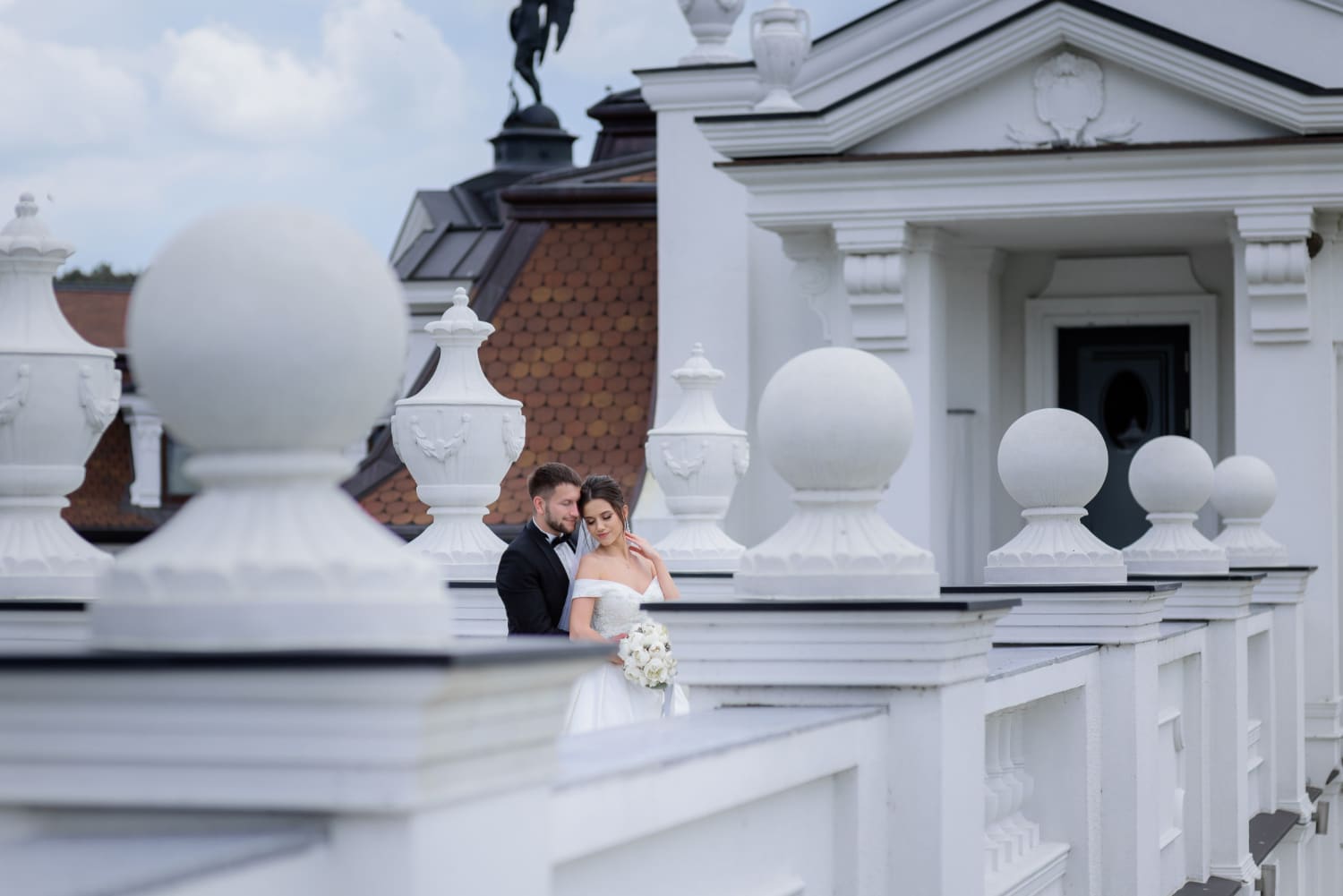
Wedding Planning: What to Do to Avoid Stress and Common Mistakes
Planning a wedding is an exciting experience, but it can often become a source of stress and confusion. Between deadlines, decisions and numerous details to manage, it is easy to make mistakes and feel overwhelmed. ChiaraB Wedding Planner & Events Designer offers a practical guide for relaxed and efficient wedding planning, helping newlyweds to avoid common pitfalls and enjoy every moment.
Here are ChiaraB's tips for planning a stress-free wedding.
1. Establishing the Budget Right Away
One of the first things to do is to set the total budget and establish priorities. Understanding how much you want to invest in each aspect of the wedding helps to avoid hasty decisions and unpleasant surprises.
Practical tips:
- Defining a list of prioritiesdeciding which aspects are crucial, such as the location, the catering or the photographer, and allocate them a larger share of the budget.
- Inserting a marginKeep a small reserve in the budget for possible unforeseen expenses.
- Monitoring expenditureCreate a spreadsheet or use an app to keep track of all your expenses.
2. Planning in advance
Planning in advance is the secret to reducing stress. Starting well in advance allows you to choose the best options and more time to make informed decisions.
ChiaraB's advice:
- Preparing a timelineSet deadlines for each task, such as choosing the dress, sending invitations, and confirming the catering.
- Allocate one month to each phasededicating specific periods to different tasks helps to break down the organisation and deal with it gradually.
- Involving the right peoplewitnesses, friends and family members are often happy to help, so it is useful to delegate some tasks to reduce the pressure.
3. Choose the Location Carefully
The venue is the heart of the wedding and determines much of the atmosphere of the event. However, choosing the perfect venue takes time and care.
What to consider:
- Checking availabilityMany locations require bookings a year or more in advance, especially in high season.
- On-site visitsSeeing the location in person is crucial for assessing the space, light and details that might be missed in the photos.
- AdaptabilityChoosing a location that offers flexibility in case of bad weather, such as an indoor hall or a tent, can make all the difference.
4. Select Suppliers with Caution
Photographers, florists, musicians, catering: each supplier plays an important role in the success of the wedding. Taking the time to select reliable suppliers in line with the desired style is essential to avoid stress and surprises.
Advice on choosing suppliers:
- Evaluating experience and reviewsThe opinions of other brides and grooms and the experience of the supplier are indicators of reliability.
- Request detailed quotationsKnowing what is included in each service avoids unexpected additional expenses.
- Choosing suppliers who listenWorking with professionals who understand and respect the vision of the bride and groom is essential to achieve a customised result.
5. Maintaining Open Communication with the Partner
Organising a wedding can test a couple's patience. Maintaining clear communication and listening to each other helps to experience organisation as an opportunity for growth and collaboration.
How to avoid tension:
- Sharing Taskseach can take care of specific tasks, avoiding overloading one of the two.
- Taking breaks: devote oneself to activities unrelated to the wedding to avoid thinking exclusively about the organisation.
- Planning couple momentsSmall gestures and moments of relaxation help to maintain serenity and remember the final goal.
6. Organising the Guest List Strategically
The guest list is often a major cause of stress. ChiaraB recommends starting with a preliminary list and making progressive adjustments, while maintaining a manageable number of guests.
Tips for a balanced list:
- Start with a list of 'mustsInclude close family members and close friends as the basis of the list.
- Setting Criteriato include or exclude people in a consistent and objective manner.
- Not feeling obligedinvite only the people you really want to have near you in this special daywithout external pressure.
7. Don't Neglect Relaxation Times
To avoid feeling overwhelmed, it is essential to carve out moments of relaxation and take breaks from planning. Wedding planning is important, but so is the serenity of the bride and groom.
Suggestions by ChiaraB:
- Booking a wellness dayA spa or a simple walk in nature can help you relax and recharge your batteries.
- Avoid talking about marriage every dayAllow yourself moments when you are not dealing with organisational issues.
- Practising relaxation techniquessuch as yoga or meditation, to keep calm and manage stress.
8. Creating a Vision Board for the Theme and Style
A Vision Board is a collage of images and ideas that helps define the style and theme of the wedding. This tool is useful to clarify the overall vision and to better communicate with suppliers and collaborators.
How to make a Vision Board:
- Collecting inspirational imagesfrom magazines, the internet, and social media such as Pinterest.
- Identifying a colour schemedefining the atmosphere of the wedding.
- Include specific detailssuch as dress styles, floral decorations and table ideas.
9. Providing a Plan B
Having a plan B is essential, especially for the weddings outdoors. From weather to unforeseen delays, it is always good to have a back-up option to avoid stress in case of last-minute changes.
Practical advice:
- Planning a backup locationIf possible, choose a location that has both outdoor and indoor spaces.
- Discuss Plan B with suppliersMake sure that suppliers are ready to handle any changes.
- Considering insurance cover: many agencies offer insurance for eventswhich can cover any logistical problems.
10. Rely on a Wedding Planner for Complete Support
A professional wedding planner can considerably lighten the organisational load, managing the details and allowing the bride and groom to concentrate on the most important decisions. ChiaraB, with her experience and passion, can turn wedding planning into a smooth and enjoyable process.
The advantages of having a wedding planner:
- Coordination of suppliersmanagement of quotations, timing and contactsto avoid overlaps and problems.
- Customised supportThanks to their experience, the wedding planner can recommend solutions tailored to the couple's specific needs.
- Wedding day managementA wedding planner like ChiaraB takes care of the overall coordination, allowing the bride and groom to enjoy their day without worries.
FAQ: Planning a Stress-Free Wedding
1. What is the right time to start planning the wedding?
Ideally, you should start about 12-18 months before the chosen date, especially to book the most popular locations and suppliers.
2. How can I handle possible conflicts with family members regarding the wedding organisation?
It is important to keep communication open and set clear boundaries. It is your special day, so try to explain your choices and only involve family members in decisions you are willing to share.
3. How useful is it to rely on a wedding planner?
A wedding planner can make a big difference in reducing stress and optimising the budget by coordinating every aspect of the wedding!
With advice from ChiaraB, it is possible to realise a wedding that combines simplicity, elegance and freedom, for a special day that will remain in the hearts of the bride and groom and their guests.
For more ideas and advice, contact ChiaraB Wedding Planner & Events Designer at 392 615 8292 or visit the official website https://chiarabevents.com.









